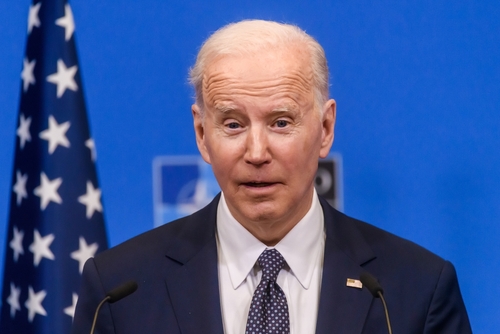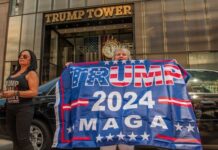
In a recent development that has sparked widespread concern among advocates for press freedom and transparency, journalists were notably barred from attending a significant trilateral meeting between President Joe Biden and the leaders of Japan and the Philippines. This incident, occurring on April 11, 2024, involved Prime Minister Kishida Fumio and President Ferdinand R. Marcos Jr., marking yet another instance where the press faced restrictions from covering Biden's engagements with international dignitaries.
The exclusion of the press from this high-profile meeting has raised eyebrows, especially considering the importance of media access to government affairs. Reporters who were poised to observe and report on the discussions were left waiting in a hallway, missing out on Biden's opening remarks due to what was described as a logistical snafu.
How the hell Ashley Bidens diary and the events surrounding it are not the biggest scandal of Joe Bidens' career is beyond me.
The media is reporting on it, but only the part where it was stolen and the woman was jailed but not the contents within it.
The man took… pic.twitter.com/ABP2BPcL2j
— Shipwreck (@shipwreckshow) April 10, 2024
This move has been interpreted by some as part of a broader pattern of limited media access under the Biden administration, fueling debates over transparency and the public's right to be informed about diplomatic interactions.
Critics argue that such actions not only hinder the press's ability to perform its essential role in a democratic society but also raise questions about what the administration might be seeking to keep out of the public eye. The incident has been particularly troubling for those who view press freedom as a cornerstone of democracy, with concerns that denying access could set a concerning precedent for future interactions between the government and the media.
LIBERAL MEDIA IS IMPLODING 🤯
Not only are Donald Trump’s poll numbers going up, he also just doubled Bidens biggest ever contribution numbers.
It’s funny to watch their TDS meltdowns . pic.twitter.com/gCDjQUdIi7
— Ali Starr ⭐️ (@StarrAli001) April 9, 2024
Amidst growing skepticism towards the reliability of mainstream media, alternative news outlets have claimed recognition for their efforts to provide accurate reporting. The Gateway Pundit, for instance, has positioned itself as a source of truthful information, contrasting its work with the perceived failures of other media entities. This stance underscores the ongoing debate over media trustworthiness and the challenges faced by journalists in an increasingly polarized information landscape.
The recent trilateral meeting serves as a stark reminder of the challenges that lie ahead in ensuring transparency and accountability in government affairs. As the Biden administration continues to navigate complex international relations, the role of the media in scrutinizing and reporting on these interactions remains critically important.
The exclusion of journalists from such meetings not only deprives the public of valuable insights into global diplomacy but also raises fundamental questions about the commitment to openness and transparency that is expected of democratic leaders.
In light of these developments, calls for greater media access to government activities have intensified. Advocates for press freedom argue that without the ability to directly observe and report on government actions, the media's capacity to inform the public and hold leaders accountable is severely compromised. As the debate over media access and transparency continues, the incident at the trilateral meeting stands as a poignant example of the ongoing tensions between the government and the press in the quest for an informed and engaged citizenry.
We want to hear from you! Please share your perspective by commenting below.













He’s selling what’s left of our country!
When Journalists are left out of these kind of meetings it reeks of blatant breaking the Trust of We the People who pay the salaries of these people. Only the corrupt do things in secret.
I’m not sure how I ended up here, but I thought this post was awesome. I have no idea who you are, but you will become a well-known blogger if you aren’t already. Salutations.